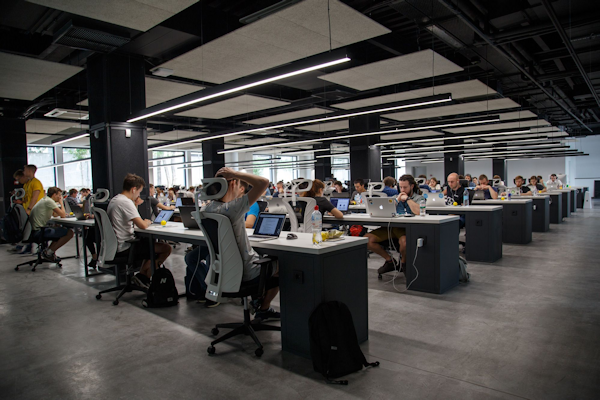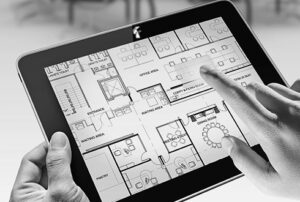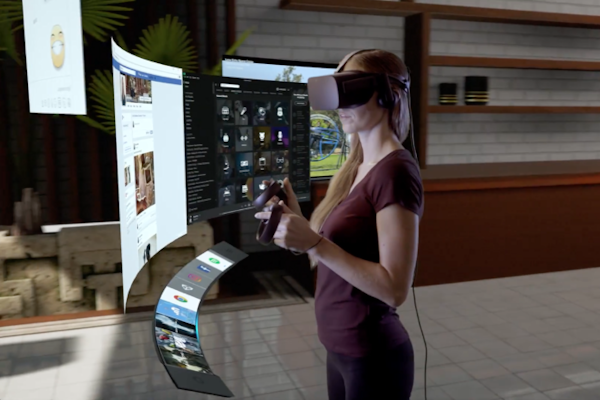
WORKPLACE COLOCATION
Reposition office communications, data stores, and localized resources to the cloud for disaster fail-over and secure, anytime, anywhere access.
TRADITIONAL OFFICE
 IS HISTORY
IS HISTORY
In-house only workspaces will fatigue the bottom line
 UNDER THE WEATHER
UNDER THE WEATHER
There are many reasons why employees are late to work or need to take a personal day without advanced notice. Inclement weather, traffic jams, sick children, car troubles, or bad hair can negatively impact our business. The most common solutions are to overburden the punctual with extra work, limit output capacity, or compromise our service quality. While our operational requirements are ongoing, so are the excuses that will impede progress.

IN THE MOOD
Humans are finicky creatures. We get hungry and thirsty but rarely at the same time. Our emotions and our bladder control us. We need to socialize and to be left alone. We dislike change, yet we’re unsatisfied with the status quo. We will, however, adapt to our current surroundings and get stuff done, even while we’re daydreaming about greener grass because we are experienced professionals, after all.

AMIDST THE GROWTH
Employees need space and resources to perform their work, not to mention utilities, parking, break rooms, and coffee. As our business expands, our physical infrastructure will also and that unit cost supplements loaded salaries (wages, training, taxes, benefits, insurance, supplies, and more), which increase our overhead nut. Don’t even get me started on the expense of liability insurance and regulatory compliance for in-house staff.

PLAN B(ackup)
As business leaders, it’s our job to prepare for the inevitably unexpected. Redundant technology protects our data. Redundant systems protect our property. Redundant staff protects our progress. Redundant portfolios protect our investments. We even employ redundant procedures to protect our assets. Yet sometimes all hell breaks loose, and we get blindsided.
Redundancy is real-time disaster protection against just about any conceivable threat we might face. But what good is this insurance policy when we can’t get into the office?
REMOTE OFFICE

IS OUR FUTURE
When, where, and how we work will influence the results of it.

FLEX TIME
Today’s most successful people have realized how priceless time is and that doing more in less of it is the secret to a healthy, balanced life. We each have distinct, internal, attentiveness clocks that dictate when our mind can concentrate the most. Having the freedom to work when our brain is most productive and to take breaks when it’s not, can harness our best potential.

FLEX SPACE
Business happens anytime, anywhere. On the golf course, at the gym, in the car, during dinner, over drinks, and occasionally around the office. We are primed for peak performance when we are in our emotional element. It’s easier to do a deal, make important decisions, complete tasks, and fulfill our responsibilities in an environment that accommodates our ever-changing mood.

FLEX-PECTATIONS
Distractions are all around us, but how we deal them is as unique to our personality as our fingerprints are to our identity. Some people tap into their creativity with background music while some write in silence. Some prefer a cushy office chair, yet others prosper on a core ball. Some are mindful of feng shui, and others meditate in their messiness. When our workspace is comfortable, our headspace can center on the task at hand.

PLAN C(olocation)
Almost everything we can do in the office can be done virtually from anywhere. Interoffice communications can seamlessly extend globally to cell phones, home landlines, and online platforms like Skype and Google Voice. Video conferencing is quickly replacing BOARDroom meetings. Computers and smart-devices authorized to access our data can do so on or off-premise. And since the applications we use to perform our daily work are portable, shouldn’t our employees be also?
“Prepare your work outside; get everything ready for yourself in the field, and after that, build your house.”
~ Proverbs 24:27 ~
By reducing the stress and strain of time-sucks like traffic, long meetings, and inter-office distractions, we can increase the quantity and quality of our productivity.
HOW DOES THIS WORK?
Workplace Colocation gives us the flexibility to strengthen our core (capabilities) and stretch beyond our (capacity) limitations. Over time, we will improve our ability to balance the weight of our ambition and counter whatever impedes us from achieving it. My involvement, to assist in the success of your mission, would be through:
PHASE 1: PREPARATION
- Learning the future goals and foreseeable challenges of your mission
- Reviewing the general patterns and processes of departmental workflows
- Assessing the requirements and capabilities of your technical infrastructure
- Surveying the internal culture and external ecosystem of your institution
PHASE 2: PRESENTATION
- Reporting our analysis and interpretation to verify overall comprehension
- Qualifying our knowledge and experience relative to your scope of expectation
- Researching the best cloud products and services to align with objectives
- Proposing a cooperative solutions blueprint with phased milestones and deadlines
PHASE 3: PRODUCTION
- Screening potential outsourced partners and SaaS platforms
- Mediating vendor relationships to maximize efficiency and ongoing support
- Facilitating productive virtual meetings and collaborative brainstorming sessions
- Managing the progress and accountability of internal and external teams
PHASE 4: PROPAGATION
- Administrating solutions implementation and employee transition
- Establishing policy addendums and revised procedural documentation
- Mentoring principle staff on how to utilize new tools and systems effectively
- Evaluating results and making potential next-step recommendations



